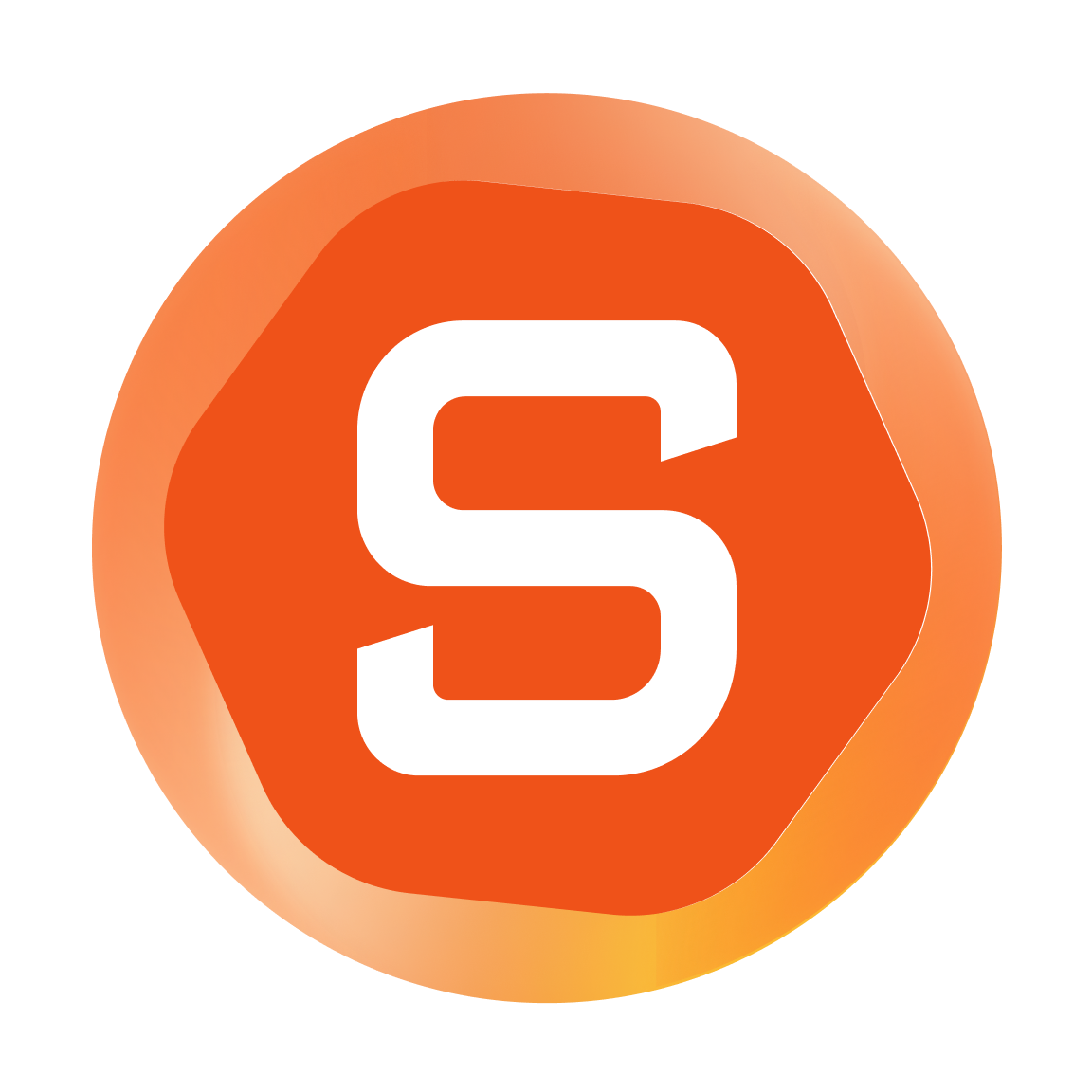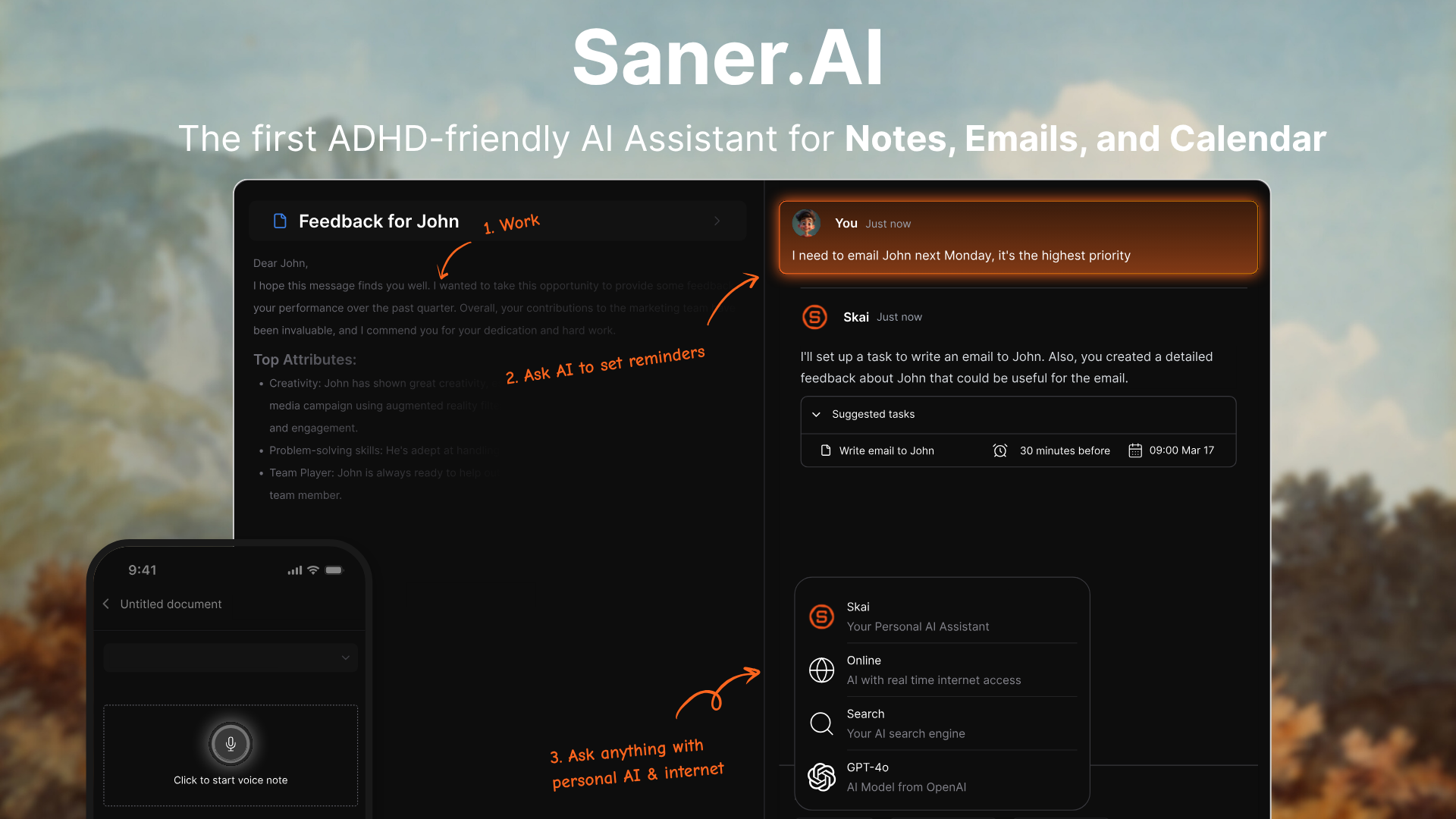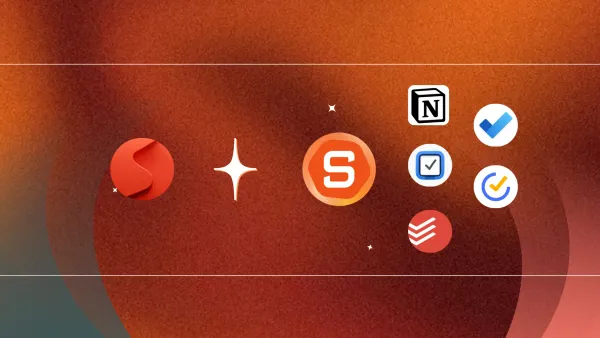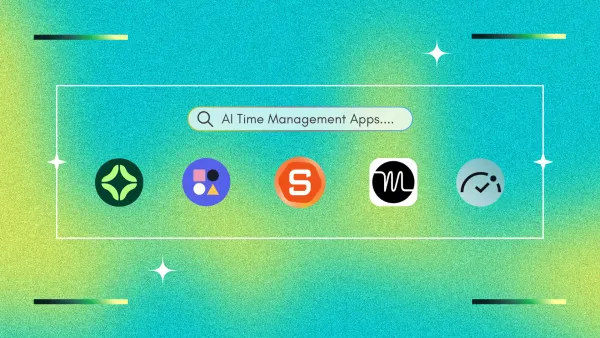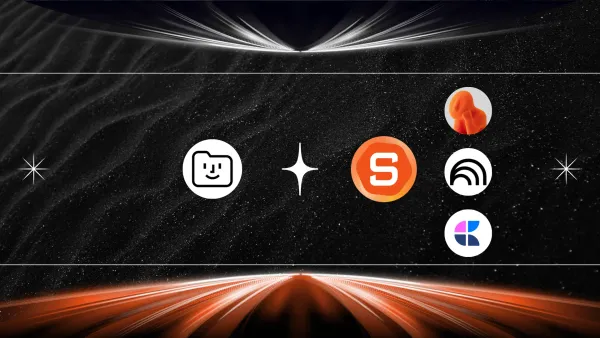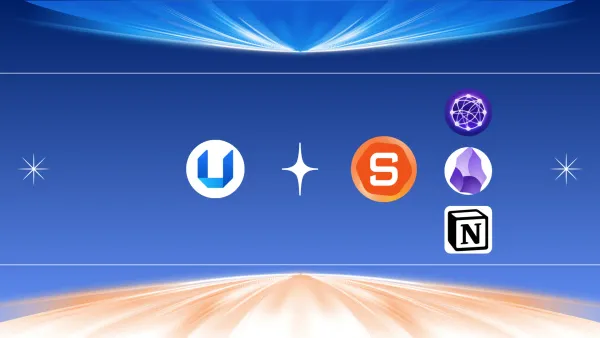How to Be Time Efficient: With Science, Tools, and Habits

How to Be Time Efficient in 6 Science-backed Steps
Ever feel like the day just... disappeared?
You sat down with good intentions. Maybe even made a to-do list. But suddenly it’s 5 PM, you’re drowning in tabs, Slack messages, and half-finished tasks—and you’re not sure what you actually accomplished
You’re not alone.
In a world of remote work, AI overload, and endless notifications, time isn’t just slipping - it’s evaporating.
That’s why time efficiency matters more than ever. Unlike productivity (which often glorifies doing more), time efficiency is about doing what matters most, with less stress, fewer distractions, and more clarity.
In this guide, we’ll show you how to:
- Build habits that help you focus
- Use tools that actually save time (not waste it)
- Understand the science behind your brain’s energy patterns
- And create a flexible, human-centered time system you can actually stick with
1. What Is Time Efficiency? (And Why It Matters)
Time efficiency means using your available time intentionally - maximizing results while minimizing wasted effort, context switching, and mental fatigue.
It’s not about being busy. It’s about being effective with your limited attention.
Why it matters now:
- The average worker spends 51% of every workday on low-value to no-value tasks
- Remote work has blurred work-life boundaries
- The average person checks email 15+ times a day
- AI can help - but it can also add noise
The True Cost of Inefficiency:
- Context Switching: It takes ~23 minutes to refocus after an interruption
- Decision Fatigue: We make ~35,000 decisions per day, draining willpower
- Reactive Work: Without structure, we spend days reacting, not progressing
🔬 Neuroscience Insight: Your brain has limited “working memory” and willpower reserves. Protecting them through efficient routines boosts performance without burning out.
2: Top Habits of Highly Time-Efficient People
Time-efficient people aren’t superhuman—they’re just strategic. Try adopting 1–2 of these:
- Time Blocking: Schedule tasks on your calendar like appointments. Protect your deep work hours.
- Single-tasking: The myth of multitasking is real. Switching tasks rapidly reduces output by up to 40%. Focus on one task at a time.
- Prioritization (Eisenhower Matrix): Urgent vs. important. Utilize tools like the 80/20 rule to concentrate on high-impact tasks.
- Weekly Reviews: Look back to plan forward. 30 minutes each week to assess what worked, what didn’t, and what matters next.
- Saying No Effectively: Every “yes” to something new is a “no” to what matters. Create a polite script to protect your time.
✅ Pro tip: Use templates or checklists to systematize these habits so they require less effort to maintain.
Science-Backed Methods to Use Your Time Better

Here’s what behavioral science and neuroscience say about working smarter:
Pomodoro Technique (25/5): Great for shallow tasks, but not always ideal for deep work. Try 90-minute blocks instead.
“To produce at your peak level you need to work for extended periods with full concentration on a single task free from distraction.” — Cal Newport, Deep Work (2016)
Ultradian Rhythms: Your body naturally works in 90–120 minute focus cycles. Plan around them for peak focus.
- Ultradian rhythms are biological cycles that occur throughout the day. Nathaniel Kleitman, a pioneer in sleep research, identified the Basic Rest-Activity Cycle (BRAC), showing that our bodies go through 90–120 minute energy and focus cycles, not just during sleep but while awake.
After 90 minutes of sustained activity, the body typically needs a break to restore energy and maintain performance.
Parkinson’s Law: Work expands to fill the time you give it. Set deadlines that are tighter (but realistic).
- First coined by C. Northcote Parkinson in The Economist (1955), this adage describes how tasks often take longer when more time is allotted, due to lack of urgency and a natural tendency to overthink or over-perfect.
- Modern productivity experts and researchers confirm this “expansion effect” is real. A time limit forces focus, prioritization, and faster decision-making.
Cognitive Load: Chunk tasks. Avoid stacking multiple thinking-heavy tasks back to back.
- Cognitive Load Theory (CLT), developed by John Sweller, explains that working memory is limited, and overloading it leads to performance drops. Chunking information and alternating cognitive intensity can prevent overload.
“When intrinsic and extraneous cognitive load are high, task performance and learning decrease.”
🧠 Tips supported by research:
- Break complex tasks into steps
- Don’t schedule multiple mentally demanding tasks back-to-back
- Alternate between “heavy” and “light” focus tasks
How to Build a Personal Time Efficiency System
Prioritize your time
- You might be super ‘busy’ every day, but unfortunately, that doesn’t mean you’re being productive.
- The average worker spends 51% of every workday on low-value to no-value tasks
- So identify which to-dos are most important to focus your limited time and energy on for maximum results
- You can use Saner.AI to help prioritize your tasks
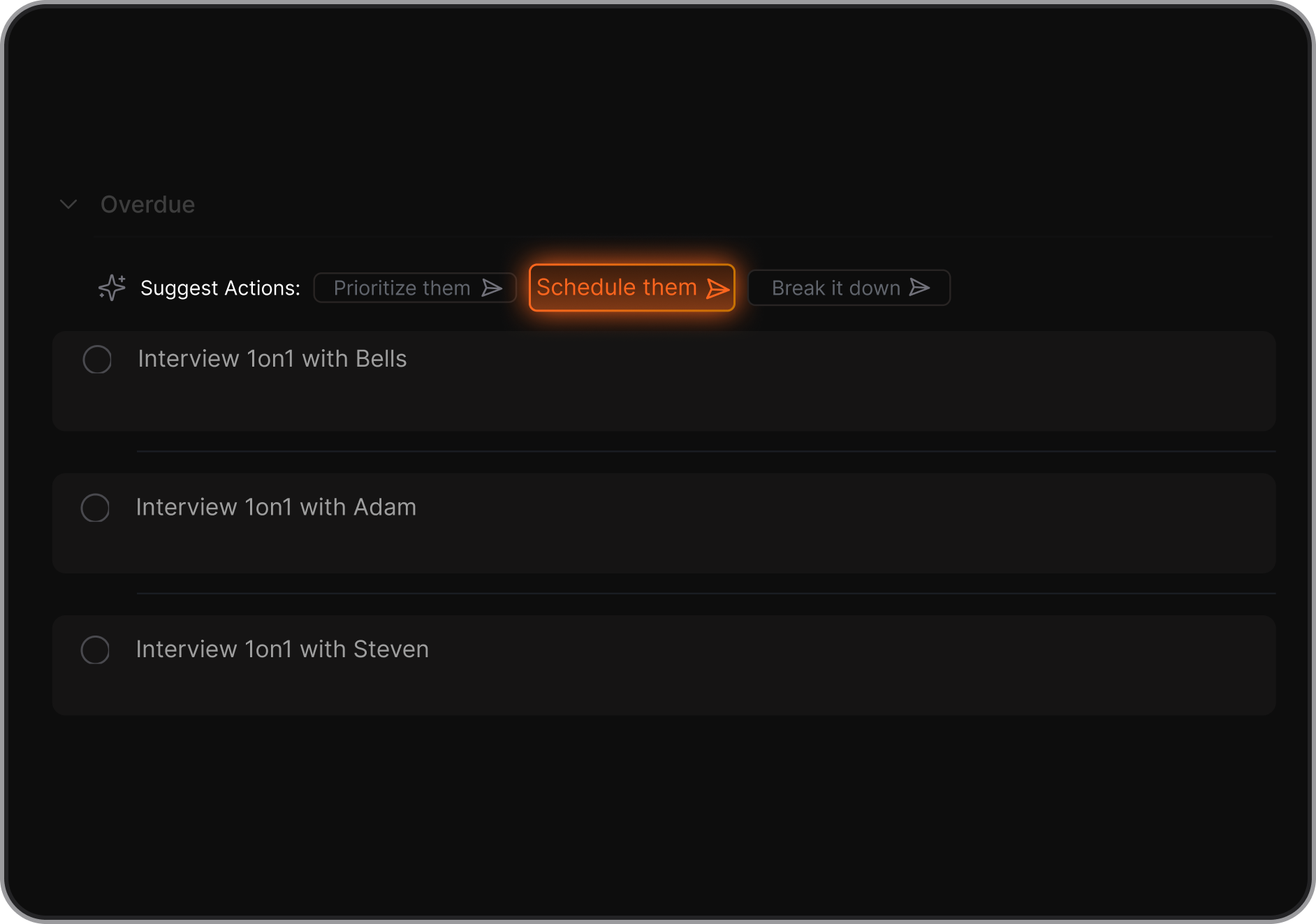
Plan your day
- Spending too much time figuring out what to do next? A simple fix: make a clear weekly plan based on your real priorities - or just set your daily goals the night before.
- It’s one of the easiest ways to work more efficiently. Still, only 12% of people actually plan their tasks ahead of time.
- To speed up your planning process, Saner.AI actively scans your information and gives you an optimal day plan every morning

Schedule your tasks
- Writing out your weekly to-do list is one thing, but actually carving out time in your schedule to do those tasks. That’s a whole different game.
- To stay on track, you need to block time on your calendar for each task, not just hope you’ll “get to it later.” Otherwise, you risk falling into decision fatigue, constant context switching, and the trap of multitasking, which, by the way, only 2% of people can actually pull off.
- The better move? Single-tasking. It means giving your full attention to one thing at a time. It’s not only a huge focus booster, but it also creates space for deep work — the kind where you get into flow and do your best thinking.
- To schedule your tasks faster, just talk with Saner.AI, it will identify tasks, set them up on the calendar, and create reminders for you
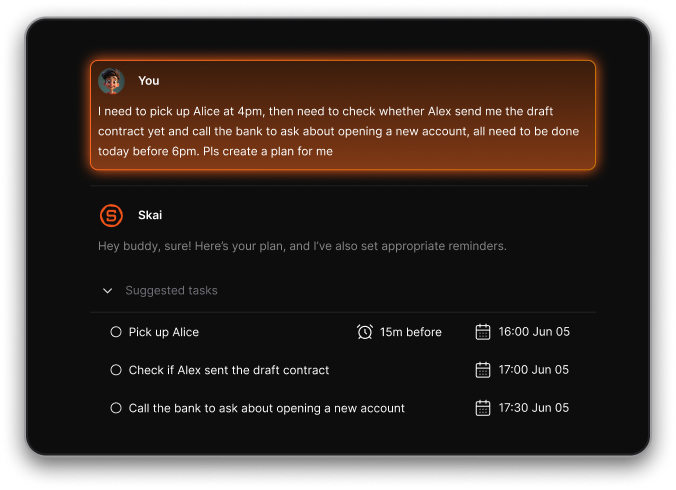
Cut down on distractions
- Interruptions aren’t just annoying - they’re a major time drain. After each one, it takes about 23 minutes to fully refocus on what you were doing.
- Now imagine this: the average U.S. professional gets interrupted 11 times per hour. That’s roughly every 5.5 minutes. No wonder it feels impossible to get deep work done.
- Want to reclaim your focus? Try small changes like:
- Putting your phone on Do Not Disturb during work blocks
- Syncing your Slack status to your calendar so people know when not to ping you
- Checking emails at set times instead of reacting to every new notification
- Even simple tweaks like these can give your brain the space it needs to actually get things done.
- To always know what to focus on, you can also use the Focus mode feature on Saner.AI - it blocks all distractions and only allows you to see the tasks you should work on

Audit how you spend your time
- If you want to be more time-efficient, the first step is understanding where your time actually goes. By scheduling all your tasks, routines, and meetings on your calendar, you're building a clear record of your weekly activity.
- Regularly reviewing this can reveal what’s working, like time spent on high-impact solo work, and what’s draining your time, like repetitive tasks or meetings that could’ve just been an email.
Protect time for deep work
- Not all work is created equal. Most professionals lose up to 6 hours a day to distractions - that’s over two full hours of lost productivity.
- Deep work means setting aside focused, uninterrupted time for your most important and mentally demanding tasks. It’s about going beyond “just getting through the list” and actually doing your best thinking.
- When you cut out distractions and get into a state of deep focus, your work quality improves, and you get more done in less time. You’ll notice ideas come more easily, and problems feel easier to solve, like hitting a flow state.
- Think of it like a workout for your brain: the more you train your ability to focus deeply, the stronger it gets. And beyond productivity, deep work also brings a sense of calm and satisfaction
12 Time Efficiency Tools Worth Trying
🔹 Planning & Scheduling
- Google Calendar: Classic but powerful, especially with color-coded blocks
- Saner.AI: AI automatically creates a daily plan with context from your emails, notes, to-do, and calendar
- Motion: Uses AI to auto-schedule your tasks based on priorities
🔹 Focus & Distraction Blockers
- Forest: Gamifies focus by growing virtual trees
- Freedom: Blocks distracting websites and apps
- Cold Turkey: Hardcore blocking for deep work
🔹 Task Management
- Saner.AI: Simple, easy to use, chat with AI to breakdown, prioritize or schedule your tasks
- Todoist: Simple, clean, and syncs across devices
- TickTick: Built-in Pomodoro timer + task tracking
🔹 Second Brain
- Saner.AI: AI-powered second brain that connects your notes and surfaces insights
- Notion: Great for organizing knowledge and tasks in one place
- Obsidian: A Markdown-based tool for thinkers who want local control
Bonus: AI-Powered Time Efficiency in 2025
Welcome to the future of workflow.
AI tools are changing how we manage time if we use them intentionally.
- AI for research: Tools like Saner.ai or Perplexity summarize complex info fast
- AI for planning: Motion and Saner.AI schedule your day based on your task priority
- AI assistants : Saner.AI helps you manage notes, tasks, calendar, and emails just by chatting with AI
Save your time with an AI Personal Assistant
Conclusion
Time efficiency isn’t about squeezing every second. It’s about reclaiming your focus and directing it toward what matters most.
Forget perfect systems. The goal is clarity, not control.
👉 Try one small change this week - a habit, a tool, or a mindset shift. Track how it feels. You might be surprised by how much more time you actually have.
1. What does it mean to be time efficient?
Being time efficient means getting the most valuable work done in the least amount of time, without burning out. It’s not about doing more things, but doing the right things faster and with less friction.
If you often feel busy but unproductive, time efficiency might be the missing piece.
2. Why is time efficiency important?
Time is your most limited resource. Being time efficient helps you:
- Finish high-impact work without staying late
- Make room for breaks, hobbies, or thinking time
- Reduce stress and decision fatigue
- Avoid the trap of “being busy but going nowhere”
Whether you’re a manager, solo founder, or student, learning how to be time-efficient directly improves your performance and mental clarity.
3. How to be time-efficient at work?
Start by focusing on fewer, more meaningful tasks. A few proven tips:
- Time block your calendar for deep work
- Batch small tasks like emails or admin work into one chunk
- Use the 80/20 rule – identify what 20% of your tasks create 80% of your results
- Cut context switching – use fewer apps, fewer tabs
Tools like Saner.AI can help by organizing your notes, nudging your next task, and reducing decision fatigue.
4. How to be time efficient with ADHD?
If your brain jumps from idea to idea, try:
- Breaking tasks into tiny, doable chunks
- Using visual timers (Pomodoro works well)
- Having an external system (like Saner.AI) remind you of next steps
- Writing brain dumps, then turning them into actions
The key is creating a structure that doesn’t feel rigid—gentle systems that bring you back when you drift.
5. What are the best tools to be more time efficient?
Here are a few worth exploring:
- Saner.AI – Smart Personal GPT for turning messy notes into next steps
- Motion – Auto-schedules your day based on tasks and priorities
- Reclaim.ai – Dynamic time blocking that protects focus time
- Notion + AI – Good for planning and centralized workspaces
Whatever tool you choose, the best one is the one that reduces thinking about work, so you can get back to doing it.
6. What habits improve time efficiency?
Time efficiency isn’t just about tools, it’s mostly about habits. Try:
- Plan tomorrow the night before
- Set 1–3 daily priorities instead of endless to-do lists
- Protect mornings for focused, creative work
- Say no more often to stay aligned with your actual goals
Micro habits like these stack over time and transform how much you get done without feeling overwhelmed.
7. How can AI help me be more time-efficient?
AI can take the load off your brain. For example:
- Summarize long documents or meetings
- Prioritize your daily tasks based on urgency
- Turn messy notes into clean action items
- Suggest focus time slots based on your calendar
A Personal Assistant like Saner.AI learns how you work and helps you move faster without the chaos.
8. What’s the fastest way to become more time-efficient?
Start small:
- Pick one task you keep procrastinating on
- Set a 15-minute timer and just begin
- Use Saner.AI to get daily plan + check in automatically
- Review what helped you, and repeat it tomorrow
Time efficiency isn’t about a complete overhaul. It’s about building a better day at a time.
